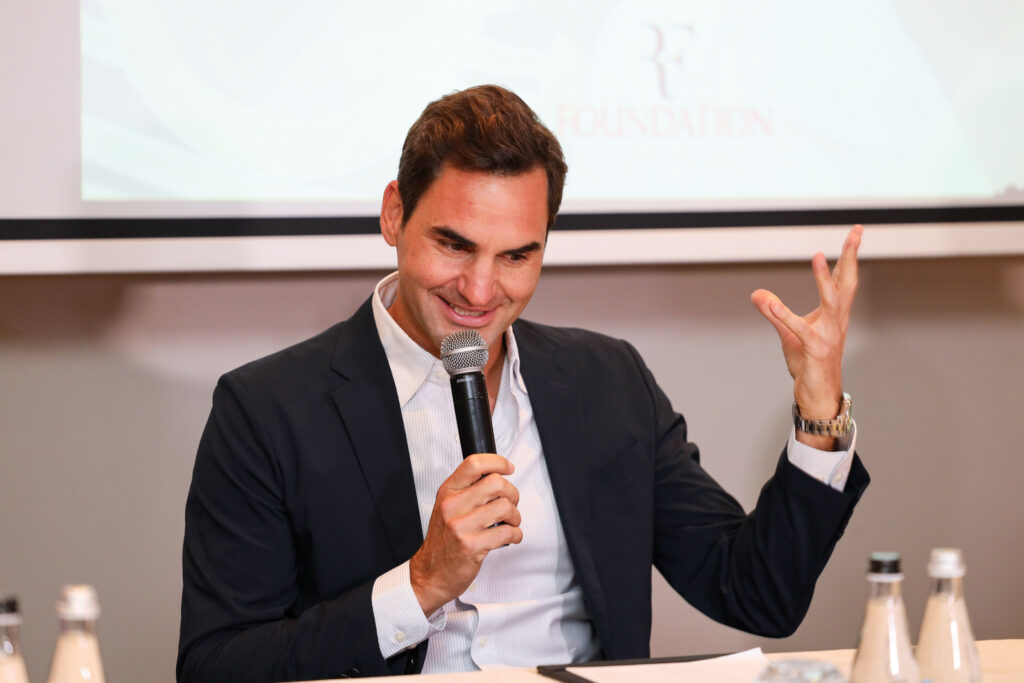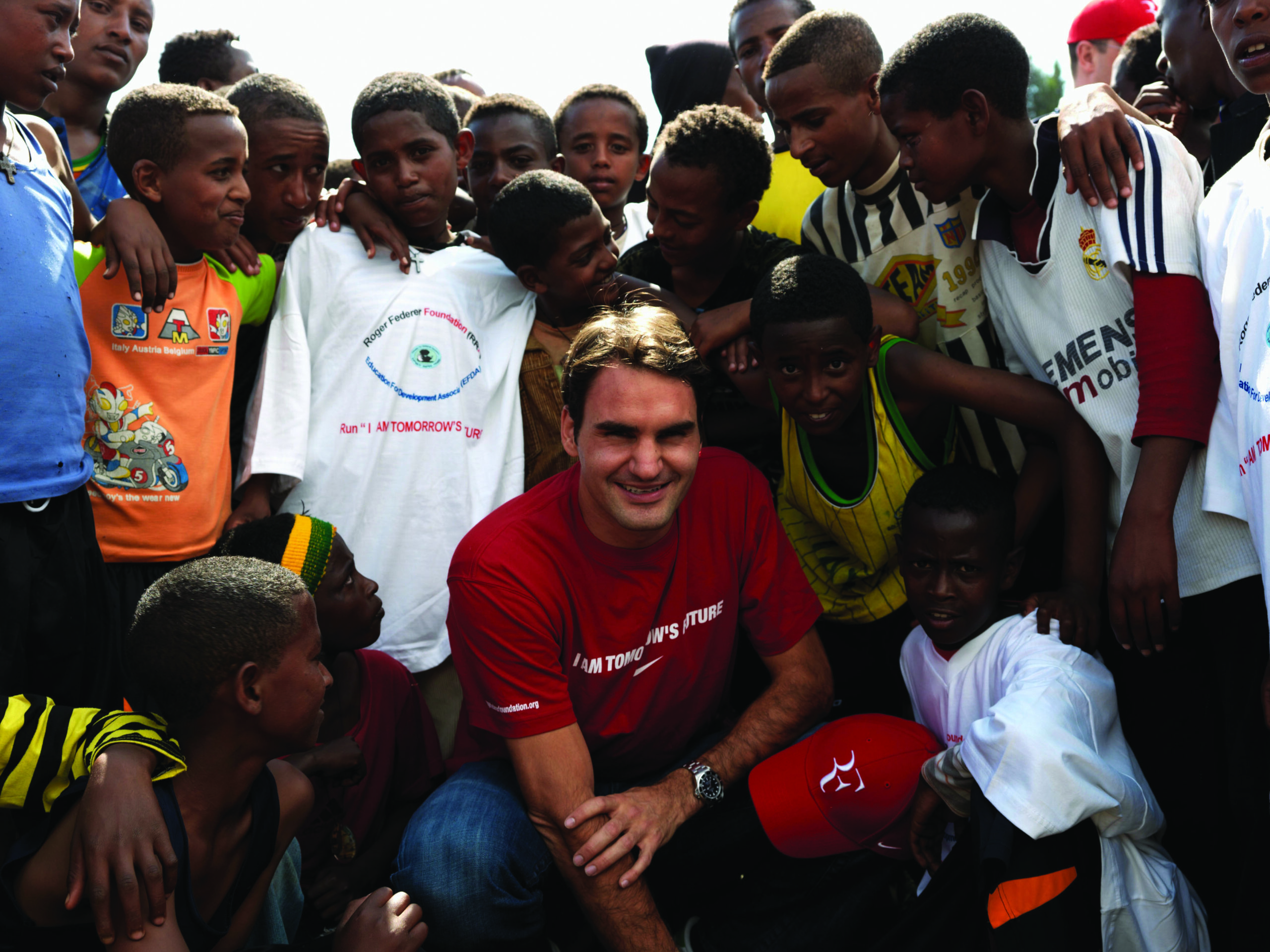Former Swiss-South African Tennis player ROGER FEDERER is as passionate about education as he is about sport. He talks about his eponymous foundation and the milestones that have made his philanthropic work worthwhile on the continent.
Roger Federer began playing tennis at the age of three and went on to win 20 Grand Slam titles and 103 career Association of Tennis Professionals (ATP) titles throughout his career. What we probably don’t know is that through the Roger Federer Foundation that he launched in 2003, he is serving children so they have the best start in their educational journey. On a recent visit to South Africa, Federer, along with South African rugby captain, Siya Kolisi, relayed and emphasized the importance of access to quality early childhood education. We asked him:

Q. How important would you say sport is as a catalyst for social change and why?
A. It all starts with early motor skills. From a young age, chil- dren need to develop their social and cognitive skills, which help them to communicate and learn. Movement also plays an important role here. Strong motor skills aren’t just important for physical development; movement also has a social aspect to it. The development of the brain and body are linked.
If a child’s early motor skills are well-developed, they are more likely to succeed in sports later on, but it’s more than that. The importance of motor skills development, and the impact on an individual as a whole, can’t be understated.
Loading...
Q. What is the Roger Federer Foundation doing in terms of skills development for educators and support staf?
A. Working though our implementing partner organizations, we provide educators with tablets containing knowledge and tools that help them improve their teaching. These tools in- clude a course on play-based learning and resources on mo- bilizing parents to build playgrounds and be more involved in their children’s learning. Another app allows educators to track each child’s development using specially-designed ac- tivities. We also distribute sets of booklets that contain toy- making and learning activities that parents can use with their children. This allows parents to make an important contribu- tion to their child’s education at home.
In South Africa, we have started involving government officials at circuit and district levels, with the aim of getting them to digitally track important data at pre-primary schools. This includes data on attendance and enrolment as well as data that continuously tracks if children are reaching their mile- stones, also ensuring that support is provided right away to children who are falling behind.
Q. Has there been a defining or standout moment for you that you use as motivation to continue the work that you do?
A. Small things, like seeing children enjoying a newly-built playground that their community has built with our guid- ance, already inspire me to keep going. We also know that children who get a quality pre-primary education are more likely to succeed in school and less likely to repeat grades or drop out. Studies have shown that success in education has a vital impact on economic performance later on. The massive impact of quality early childhood education (ECD) on not just people, but communities and even countries, motivates me a great deal.
In terms of funding, the Global Partnership for Education (GPE) has matched millions in funding in Lesotho, Malawi and Zimbabwe, which was thrilling for us. Recently, Presi- dent [Cyril] Ramaphosa also emphasized that South Africa has prioritized ECD, stating that a strong foundation is vital for children’s later success. More and more, governments are beginning to put ECD on the agenda. It’s a very exciting time for my foundation and all the fantastic organizations that have been working tirelessly in this space for decades.
Q. As an accomplished athlete, how do you continuously cultivate a winning mentality not just in sport but in life?
A. From tennis, I learned early on that success isn’t just about talent; it’s about consistency, resilience, and always being open to learning. That same approach applies to life beyond the sport. I try to stay curious, embrace new challenges, and keep things in perspective. Surrounding yourself with great people who you can learn from and push you to improve is extremely important.
Loading...
